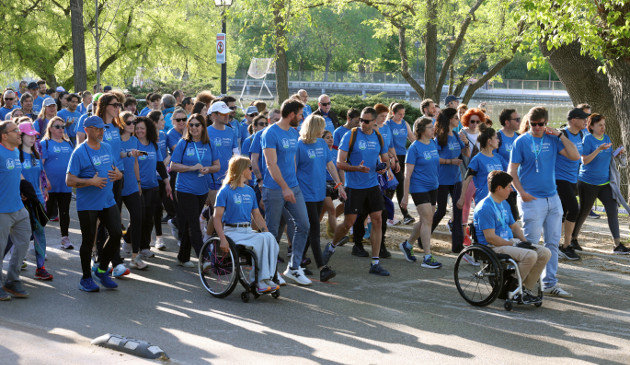Written by former Bupa Global and UK CEO, David Hynam
It’s challenging getting to grips with the ’new normal’ current way of life.
Many people are making adjustments to keep the nation safe: be it on the clinical frontline; while caring for our families and neighbours; juggling home-schooling with work; or finding new ways to stay in touch with friends.
In addition to the focus on preventing the spread of infection and protecting our physical health, it’s clear that we’ll need to be resilient as we move through this national emergency. Taking care of our mental health has never been more important.
I’ve been exceptionally proud of colleagues who’ve pulled together to find new ways to support both for our customers and our people.
We have expanded our Bupa mental health support to meet the needs of our customers with underlying mental health conditions, facing social isolation or additional COVID-19 induced stress.
Elsewhere we’re offering remote consultations and online CBT therapy for customers, and our trained Family Helpline advisors are here to provide much needed support and advice for parents about their child’s emotional wellbeing.
And our support isn't limited to Bupa customers. Our team of health advisors are continuing to share a wealth of advice and helpful information, freely available via our Mental Health Hub.
Similarly, the Bupa UK Foundation has partnered with the charity, Mind, to support the mental health of younger people. You can find a new ‘coronavirus and your wellbeing – for young people’ guide to help teenagers who are worried about coronavirus and want to know how to cope with changes to their lives. Again, it's a public resource and completely free to access.
There are also some really powerful tips from Dr Rajeev Dhar, Consultant Psychiatrist for Bupa Cromwell Hospital, who recently shared advice on how to manage anxiety and to maintain a sense of normality in difficult times.
The below really resonated with me, and I hope you’ll find them useful too.
- Don’t read everything that is out there. Avoid random information that is not medically accurate – some Twitter feeds and WhatsApp forwards can be very misleading
- Keep in regular contact with friends and loved ones using the telephone and video links – remember: self-isolation doesn’t mean social isolation. It helps to talk to people about your concerns and feelings however embarrassing they may be
- Help others. This makes us feel stronger and we then tend to feel less isolated
- Recognise when you are getting anxious and restless. Avoid overthinking or catastrophising.
- Plan your day ahead and make sure you’re still following routines where possible. Consider home-based exercise; ensure you’re eating a balanced diet, and make time for relaxation and sleep
- Consider trying relaxation techniques, like yoga or mindfulness, and watch programmes or read books that relax and uplift you
The COVID-19 situation is moving rapidly, and we continue to update relevant information on the Bupa COVID-19 online hub. We will be posting regular updates including frequently asked questions as well as content to help people manage their physical and emotional wellbeing during the crisis.
COVID-19 is a public health emergency, and something we all need to respond to. Everyone at Bupa remains fully committed to keeping our patients, residents, customers and people safe.
Bupa guest author



